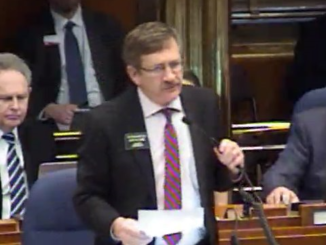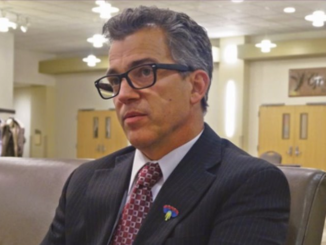
I was recently following a conversation between multiple individuals on the topic of taxation. As is typically the case, the conversation included various points of view, but one comment was especially prevalent to me. It is the argument that big government’s confiscatory taxation is justified because of the Christian mandate to care for others.
U nfortunately, we see this argument far too often. It makes me shudder each time I see or hear it, because it is deeply flawed.
Let me first specify what I mean by confiscatory taxation. In a nutshell, confiscatory taxes are those that government collects through threat of force. Examples of these are things like income taxes, property taxes, and inheritance taxes. Failure to pay them results in the government taking them from you– at the point of a gun, if necessary. Not only can they attempt to extract them from you at the point of a gun, but if it goes this far they will imprison you as part of the process.
Next, let’s also briefly examine the type of government our Founders envisioned for the United States of America. Our government is one of “enumerated powers”. Meaning, we grant the government power to do things on our behalf. Former Secretary of Agriculture Ezra Taft Benson expressed it best in his masterful discourse, “The Proper Role of Government”:
“The important thing to keep in mind is that the people who have created their government can give to that government only such powers as they, themselves, have
in the first place.” This is a vital foundation to understanding why confiscatory taxation is morally objectionable. Secretary Benson continues:
“This means, then, that the proper function of government is limited only to those spheres of activity within which the individual citizen has the right to act.”
Finally, let’s examine two of the biblical standards by which Christians are to conduct themselves. Confiscatory taxation violates a minimum of two of the Ten Commandments: 1. Thou shalt not steal.
2. Thou shalt have no other gods before me.
I don’t know of any Christians that would argue against the commandment not to steal. Since we have no right to steal from others, we therefore cannot enumerate the power to the government to do it on our behalf. Doing so is usurpation– seizure of a power we do not have.
While Christians do indeed have an obligation to care for others – especially the poor and needy – that obligation is to be carried out through charitable acts of giving. This can be done from one individual to another, through churches, or through other charitable organizations. But it must be voluntary to be classified as charitable. Forcing others to give through confiscatory taxation is NEVER charitable. It is theft.
Perhaps you are now wondering how confiscatory taxation violates the commandment, “Thou shalt have no other gods before me.” It’s actually very simple. When a person looks to the government to provide the basic necessities of life by forcibly taking from one person in order to provide for another, they no longer rely upon God and His followers. Instead, they rely upon the government and its agents– thereby making the government their god.
It is for these reasons that Christians should stop justifying big government’s usurpation of power and withdraw their support for confiscatory taxation.
Sources:
1. http://www.properroleofgovernment.com/





